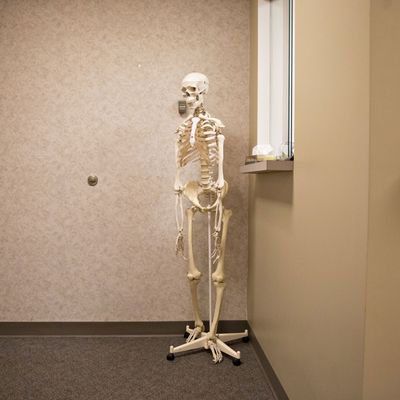
Back in April, Donald Trump told The Wall Street Journal that he planned to use the powers of his office to jeopardize health-care access for millions of low-income people, while undermining America’s insurance markets — because he believed that voters would blame the ensuing chaos on the Democratic Party, leaving Chuck Schumer desperate to negotiate with the White House over Obamacare repeal.
Specifically, the president threatened to stop paying out the Affordable Care Act’s “cost-sharing reductions” — subsidies that defray the losses insurers suffer when they sell low-income Obamacare enrollees coverage at below-market rates. (For complicated reasons related to a lawsuit House Republicans waged against the Obama administration, Trump has the unilateral authority to cancel these subsidies at any time.)
This was always going to be a bad plan, and, in sharing its details with a major newspaper, Trump made the gambit considerably worse. If you want to convince the public to blame Democrats for sudden problems in the health-care system, you really shouldn’t publicly announce that you are planning to create problems with the health-care system, so that the public will blame Democrats for what you did.
Perhaps, out of recognition of this fact — and the reality that the public tends to blame the party in power for policy crises that happen on its watch — Trump never went through with his scheme. But he carried on threatening to do so anyway. Even after Obamacare survived its death panel — and the White House turned its attention to tax reform — the administration refused to promise insurers that it would never abruptly cancel the subsidies.
In doing so, the administration has jeopardized health-care access for low-income people, while undermining America’s insurance markets.
Under Obamacare, participating insurers are required to keep deductibles and co-payments affordable for the non-affluent and the sick. In practice, this means that insurers must underprice the risk of covering such individuals, and, thus, accept a financial loss. To make that proposition more appealing to these for-profit companies, Obamacare provides them with those cost-sharing reductions.
If insurers can’t be certain that Uncle Sam is good for those subsidies, they will need to protect themselves from the risk that he isn’t. Which is to say: They will need to either pull out of the Obamacare exchanges, or else raise premiums high enough to offset the costs of covering low-income enrollees without Uncle Sam’s help.
In recent weeks, this is exactly what many insurers have done.
In response, the Trump administration slashed advertising for Obamacare open enrollment by 90 percent, and cut funding for “navigators” who help people sign up by 40 percent, thereby undermining the marketplaces even further.
A new report from the nonpartisan Congressional Budget Office suggests that this is having precisely the effect you’d expect it to — and, in so doing, lays the blame for an upcoming increase in the cost of health insurance at the White House’s door. As Vox’s Sarah Kliff writes:
The nonpartisan office estimates that average premiums in the health law marketplaces will be 15 percent higher next year “largely because of short-term market uncertainty — in particular, insurers’ uncertainty about whether federal funding for certain subsidies that are currently available will continue to be provided.”
The CBO also estimates that there will be less competition in the marketplaces next year, which it also attributes to the uncertain federal environment surrounding the health law’s future.
… The CBO also points to “announced reductions in federal advertising, outreach, and other enrollment efforts” as additional factors that will make Obamacare sign-ups smaller next year than they otherwise would have been.
Why Trump believes it’s in his interest to engineer a 15 percent rise in insurance premiums is unclear. But if the president still believes that he’ll be able to blame Obamacare’s implosion on Democrats — while loudly directing a wrecking ball toward the law’s foundations — let’s hope the CBO’s report serves as his wake-up call.






























